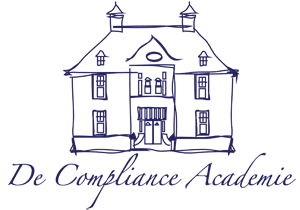Below pls find a summary of my article with the same title in Tijdschrift voor compliance – Jaargang 16-april; the full article can be downloaded from that website against a fee (click here).
Doing business responsibly?
The objective of any compliance program should in my view be to increase awareness to such extent that employees at least know which actions to take in case they are faced with business dilemmas. In other words: how to move from engaging employees to wanting to learn, through training sessions to actual behaviour in accordance with company policies? How to get complex legalistic rules into the daily DNA of the employees we are most concerned about?
Compliance has evolved over the years: it started as merely legal or regulatory compliance (adhere to the law) and gradually came to realise that in order to become effective, compliance programs had to focus on an ethical culture as well (stimulating or behavioural compliance).
Employees are expected to handle the financial means provided by shareholders in a professional, responsible manner. With the right to a monthly salary come along serious duties: to manage responsibly. To take responsibility, to explain afterwards how the employee acted and remain responsible for HOW he acted.
What AND how!
Compliance programs in this approach focus on the rules of the business game: what does this company mean with fair play? How does the company want employees to undertake business? The communication towards employees should describe not only WHAT the company wants to achieve, but also HOW it wants to conduct its business activities, and where it draws the lines. It is about communicating and explaining which values and principles are important for each single employee to use as their compass and why.
Start with why and engage
Awareness programs are rarely taken seriously unless you are able to get employees engaged. I always advise to get their own line manager to actually inform their own direct reports that this subject is indeed important and merits a lot of attention. Employees and lower line managers usually have more targets than they can handle; they often lack time and look to their own line manager to set priorities. Furthermore, they all usually suffer from the same information overkill as you and I do. So the first and foremost challenge you want to overcome is the question each employee will ask: “Why should I spend any time on this subject?” If you cannot explain why it is important to THEM, the chance is very high that the employee will not pay much attention to the awareness training, if any.
So it is crucial to engage, involve and ensure that line managers themselves actually explain the importance of paying attention to doing business responsibly. By starting with ‘why’: why is it important to you as employee and to us as company?
Translate the law?
Once you have explained WHY it is important (to keep their job, to be up for promotion, to stay out of jail, because it is the proper thing to do, because that kind of company we are indeed, etc.) you should ensure to keep the employee engaged.
Too often, e-learning courses on these subjects have been drafted by in-house lawyers, or worse: outside attorneys who are experts in this field. The approach they took was to make sure that each employee is being taught all that they wrote in a 100 page manual on the same subject. Unfortunately, they focus on teaching the employee “what the law says…”.
Please stop that kind of employee harassment. Employees are simply not interested in what the law says. If they were, they also would have graduated from law school. Instead, they chose a different trade in life. It is the first and foremost task of the lawyers to ‘translate’ the law to actual, understandable advice: to explain to this group of employees what they MUST know about competition rules and company policy. And leave out all other details!
Knowing the principles but not being able to recognize risky situations in business life or applying competition rules is what you wish to avoid. So focus on what the law means, not what it says. And focus on behaviour, red flags, grey areas, how to apply the concepts in daily business life. Challenge employees’ habits and beliefs. Challenge how some acted in the past. Make them think, pause, hesitate. Focus on what actions to take in case the employee hesitates. In designing your awareness program, allow employees to experience a great variety of business scenarios, ask them what they would do and always give extensive feedback to each answer.
In an ideal approach, you should subsequently follow up with class-room discussions on the dilemmas they actually face in their own business environment and discuss within high risk departments which dilemma they face, how they address them from here onwards and start speaking up in case an employee notices issues outside the ordinary course of responsible business. Ask about the real dilemmas, agree on how to deal with them and subsequently address each other’s behaviour in case it appears to be out of line with what was agreed. This A-A-A approach should be easy to remember.


